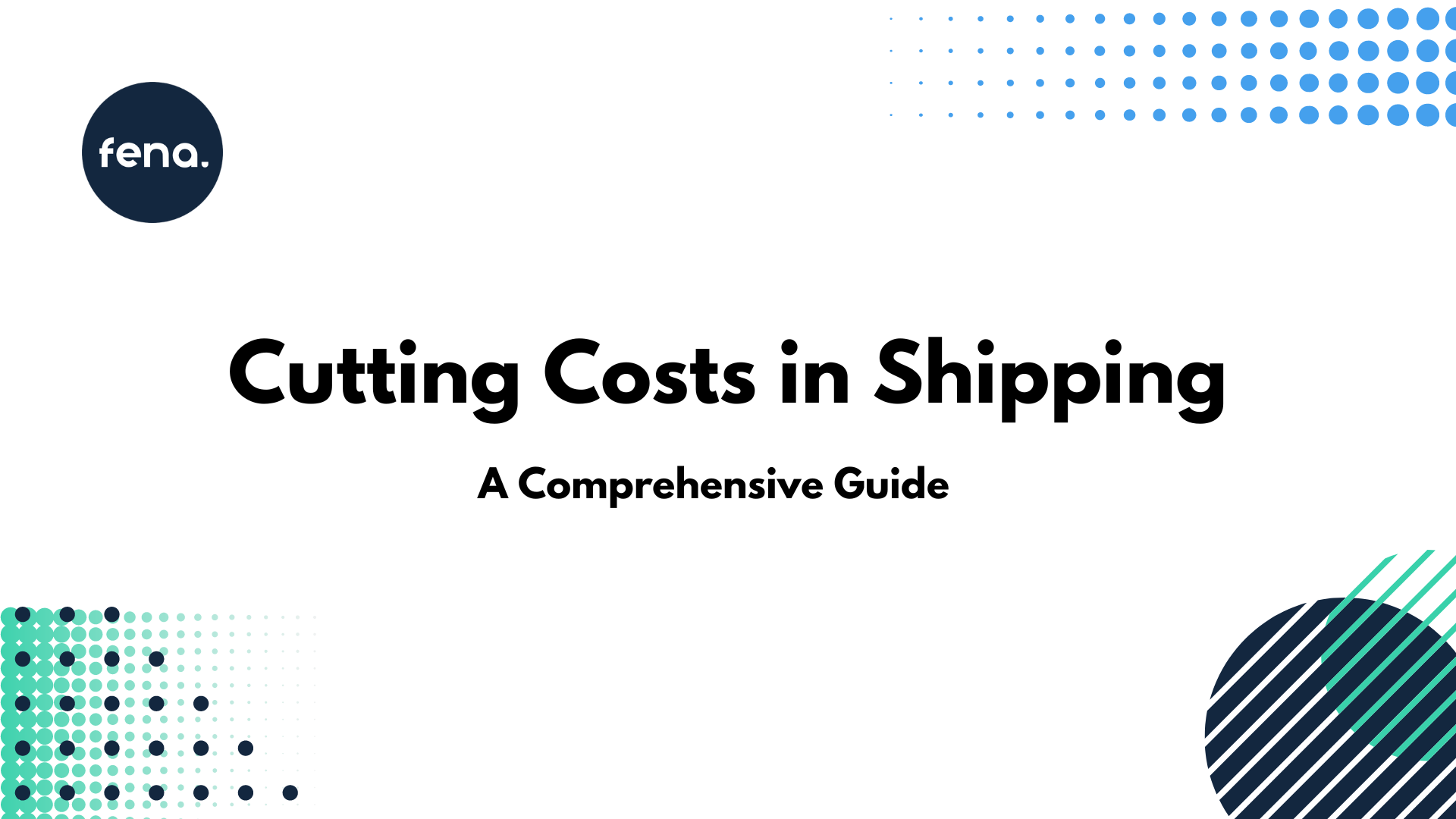Cutting Costs in Shipping: A Comprehensive Guide
by Gosia Furmanik on November 10, 2023

Introduction:
In an era where ecommerce is steadily evolving, ensuring seamless transactions and operational fluidity from checkout to delivery becomes paramount for businesses, especially for Small and Medium Enterprises (SMEs). Shipping is not just a functional necessity, but it significantly influences customer satisfaction, retention, and overall shopping experience.
The Fena Toolkit emerges as a saviour for SMEs to effortlessly scale their ecommerce activities. It aptly assists them in streamlining inventory management, optimising orders processing from multiple sales channels, and automating shipment management and order generation. But how can we leverage this toolkit to cut shipping costs, enhance efficiency, and yet uphold customer satisfaction? Let's navigate through this comprehensive guide to discover more.
1. Optimising Inventory Management:
Streamlined Inventory Visibility:
By utilising Fena Toolkit's robust inventory management capabilities, businesses can maintain real-time visibility into their stock levels, ensuring they neither overstock nor understock items. This optimization prevents holding costs and ensures that the best-selling items are always available, thereby minimising potential shipment delays and backorders.
Strategic Warehousing:
SMEs can leverage data from Fena Toolkit to strategically place their inventory in warehouses closer to high-demand areas, thereby reducing shipping distances and costs.
Data-Driven Decision Making:
Deploy the insights derived from the inventory data to make informed decisions on product demand forecasting, facilitating precise procurement and production, which indirectly affects the shipping cost by preventing rushed deliveries or excess inventory storage.
2. Integrating Multiple Sales Channels:
Centralised Order Processing:
Fena Toolkit enables the integration of numerous sales channels into a single platform, reducing the manual labour involved in managing different platforms separately and mitigating the risk of errors in order processing. This integration allows SMEs to easily manage, process, and track orders from all channels, ultimately reducing overheads related to shipping management and customer service.
Enhanced Customer Experience:
With consolidated order information, businesses can provide consistent and accurate updates to their customers regarding order statuses and tracking information, which indirectly helps to economise by reducing the resources spent on customer service and dispute management.
3. Automating Shipment Management:
Intelligent Shipping Solutions:
Automating the shipment management process through Fena Toolkit aids in selecting the most cost-efficient carrier services based on delivery times, rates, and service type, ensuring that businesses always secure the best shipping deals available.
Error Mitigation:
The automation of shipment management minimises the probability of human errors, such as incorrect shipping addresses or order details, thereby avoiding additional costs related to return shipments and reshipping.
4. Automated Order Generation:
** Efficiency in Order Fulfilment:**
Through automated order generation, businesses can promptly process orders, minimising the lead time from order placement to shipment, which, in turn, can facilitate economical shipping options.
** Enhanced Scalability:**
With automated order generation, SMEs can seamlessly handle order surges during peak seasons without incurring additional costs related to manual order entry and processing.
5. Eco-Friendly Packaging
** Cost-Effective Packaging Solutions:**
Employing sustainable, lightweight, and durable packaging materials can drastically cut shipping costs. Less weight and optimised package dimensions directly correlate with reduced shipping fees.
Brand Image and Customer Loyalty:
Adopting eco-friendly packaging can enhance a brand’s image, potentially attracting a more conscious customer base and instilling loyalty among existing customers, which indirectly influences repeat purchases and customer lifetime value.
Conclusion:
The encapsulating capabilities of Fena Toolkit are not just confined to order and inventory management, but extend exponentially towards creating avenues for cost-cutting, particularly in shipping, without compromising on the efficiency or customer experience. This guide underscores its vital components that, when utilised judiciously, can lead to an optimised, cost-effective, and customer-friendly shipping process.
Inculcating these practices into the operational workflow of SMEs not only ensures sustainability but also safeguards them against unforeseen challenges, fostering scalability and propelling them towards a future where their ecommerce activities are not hampered by inflated shipping costs or logistical perplexities.
Through the strategic amalgamation of optimised inventory management, integrated sales channels, automated shipment, and order generation, coupled with eco-friendly packaging, businesses can sculpt a path that assures minimised shipping costs, ensuring that both the enterprise and the customer embark on a seamless ecommerce journey together.